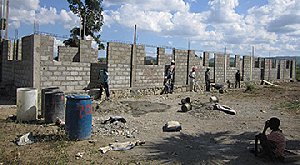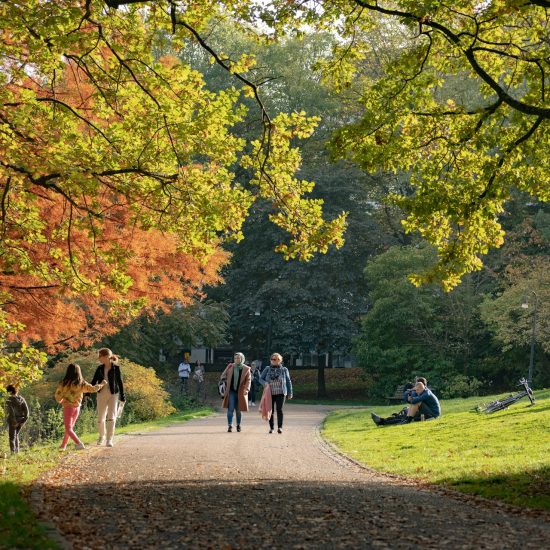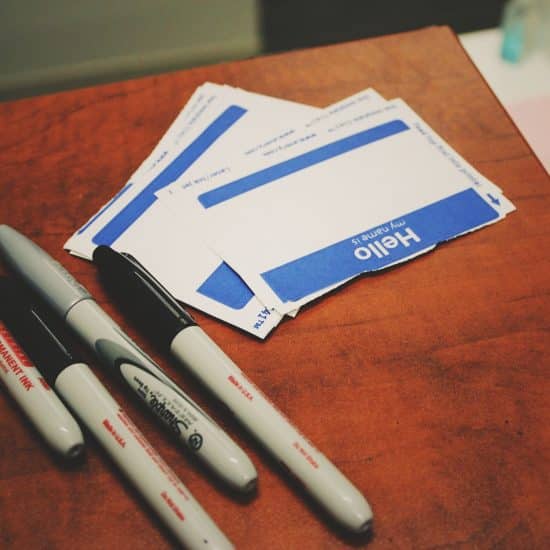LIBERTY, Mo. — Haiti’s need has become Mark Buhlig’s life work — to help those struggling with economic sustainability and to assist others to seek spiritual transformation.
Buhlig developed Points on the Wheel, a development ministry, as a result of assisting with Haitian recovery efforts after an earthquake struck the Caribbean country in January 2010. Shortly after the quake, members of First Haitian Baptist and Second Baptist churches in Liberty met to determine ways in which the congregations might help.

A child watches from the shade of a tree as a crew continues work on a new school building in Dinise, Haiti, a project Points on the Wheel and Second Baptist Church in Liberty, Mo., hope to complete this year. (Points on the Wheel photo)
|
The meeting led to sending needed supplies to the small country and then to mission trips to assist with rebuilding.
Buhlig got to know Josue Octeus, executive president of Evangelical Churches of Haiti, and began assisting with community development efforts. Octeus met with community leaders in Dinise to discover residents’ concerns and needs. The need for a building to house the school and support for teachers’ salaries topped the list.
The more Buhlig immersed himself in the country and its people, the more committed he became to service. His personal ministry, Points on the Wheel, grew out of that commitment.
Plans call for completing the school during the first quarter this year. “It looks like we are trying to build a school building, but really it is trying to help the school itself,” he said.
The structure is the outward sign of the progress toward helping the community sustain education. Second Baptist Church in Liberty has been instrumental in providing the salary supplements for teachers for this school year. Points on the Wheel plans to take over that responsibility next year. Ministry and community leaders also are seeking the best ways to provide teacher training.
Second Baptist continues to support the building effort financially. Members plan to participate in a “blessing time” for the school in August. While there, they will “have conversation about what future collaborative efforts might look like,” Associate Pastor Mike Lassiter noted.
The church also assists with rebuilding at Grand Goave, an area located near the epicenter of the 2010 earthquake. “One of our goals is to help raise awareness of the need in all of Haiti by giving opportunity for as many people as are willing to travel there,” Lassiter added.
While not directly impacted by the earthquake, Dinise is considered among Haiti’s poorest areas. “The school will open opportunities for discussion about other community development,” Buhlig said, including water, agriculture and other needs that will lead to self-sufficiency.
He is gearing up to launch new fundraising efforts, possibly including running and bicycling events. While the ministry needs money, he also stressed the desire for prayer support. “I would ask people to pray for us to be good listeners in the communities, rather than to go with an agenda so that we help communities achieve their priorities.”
Currently, Points on the Wheel is focused on Haiti. But as the ministry grows, Buhlig hopes to expand to other needy areas. The website notes it plans primarily to assist poverty-stricken communities.
“The project [in Dinise] and my dream emerged very organically,” he said. And his dream, he added, has become “a career change.”
A student in the Central Baptist Theological Seminary “create” program, Buhlig wants to lead Christ-followers to spiritual transformation as a major part of the ministry’s community development efforts.
“The ministry is about relationships, not one-sided but reciprocal,” he said. On the website, Buhlig refers to Points on the Wheel as “an organization,” “a philosophy” and “a lifestyle.”
Ministry as lifestyle is an integral part of his service as a co-leader of Together for Hope West, which works in four poor counties in South Dakota and four along the Texas/Mexico boarder. The Liberty-based project is an arm of national Cooperative Baptist Fellowship’s Together for Hope initiative targeting America’s 20 poorest counties.
He believes that those who go on mission, whether at home or abroad, should be prepared to learn and receive as much as they give from those whom they serve. “The spiritual transformation…is the destination,” he said.
He always points out that aspect when he talks to people interested in serving. “I’m trying to get groups to think of such trips as a spiritual transformation journey [in which] they bring back the sense that the communities served also change the traveler,” he explained.
Buhlig experienced that transformation, with God’s call to make a long-term commitment. “I expect I’ll be doing this the rest of my life,” he said.






